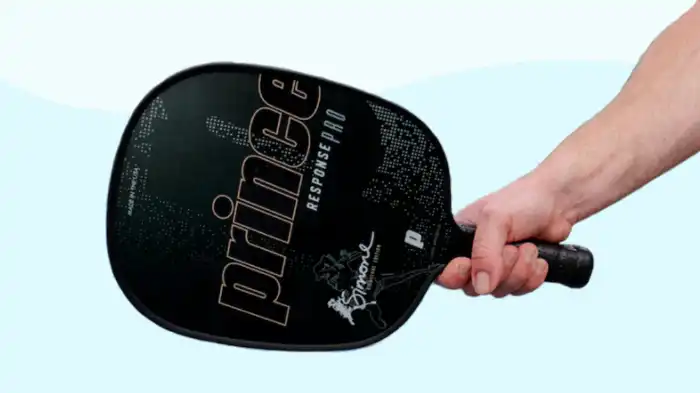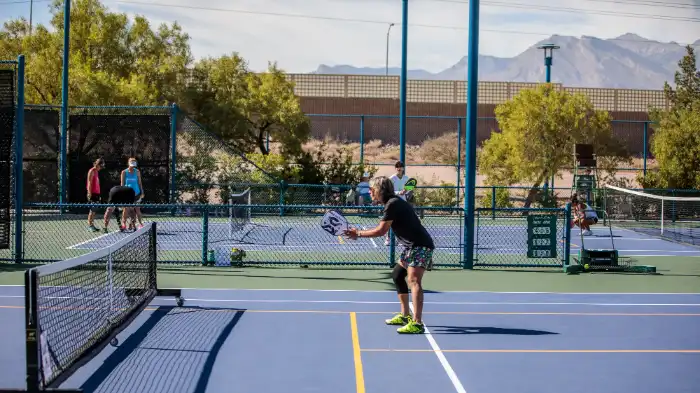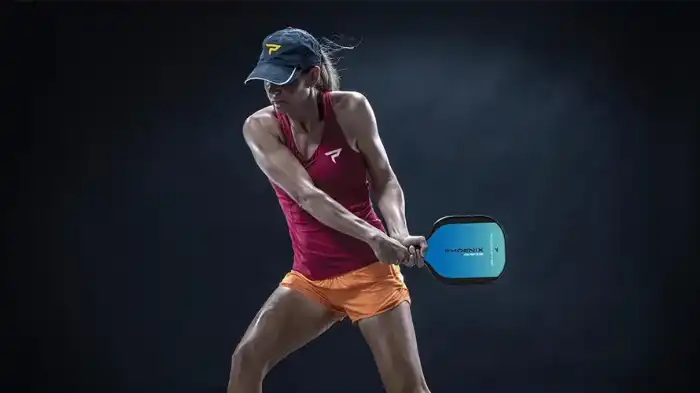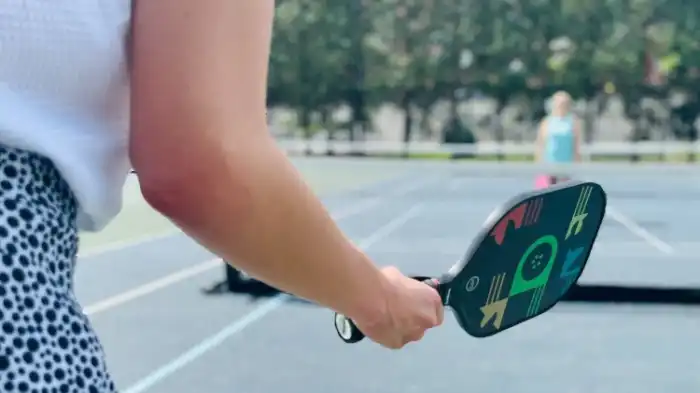Pickleball, a popular sport that combines elements from tennis, badminton, and table tennis, has been gaining immense popularity in recent years. It is a fun and exciting game suitable for people of all ages and skill levels. One crucial aspect of mastering pickleball lies in having the right grip and technique for your paddle. In this blog, we will explore the best grip for pickleball to hold the pickleball paddle, different techniques you can adopt for perfect pickleball paddle control, and factors that you can consider when finding the perfect pickleball paddle for you.
Different Grip Options for Holding the Pickleball Paddle
The grip is the foundation of any successful pickleball shot. It determines how well you can control the ball, spin it, and generate power. A poor grip can lead to inaccurate shots, loss of control, and a decrease in performance on the court. Therefore, it is crucial to understand the best grip for pickleball options that you can utilize for holding the pickleball paddle and find the one that suits you best.
The Eastern Grip
The Eastern grip is the most commonly used grip in pickleball. It involves placing the base knuckle of your index finger on the third bevel of the paddle handle. This grip provides excellent control and allows for various shots. It is especially effective for players who prefer a balanced game and focus on accuracy rather than power.
The Continental Grip
The Continental grip is commonly used in tennis but can also be effective in pickleball. It involves placing the base knuckle of your index finger on the second bevel, which is right in the middle of the handle. This grip offers versatility and allows for a wide range of shots, making it a popular choice among players who like to mix up their gameplay.

The Western Grip
If you are looking for more power and spin on your shots, the Western grip might be the best choice for you. It involves sliding your hand slightly towards the end of the handle, so the base knuckle of your index finger is on the fifth bevel. This grip allows you to generate more whip and spin, ideal for players who like to put more topspin or slice on their shots.
Techniques for Perfect Paddle Control
Once you have mastered the proper grip, it’s time to focus on technique. The right technique for the perfect pickleball paddle control ensures accuracy, power, and control in your shots. Here are a few essential techniques to keep in mind:
1. The Ready Position
The ready position is the foundation of your game. Stand with your feet shoulder-width apart, knees slightly bent, and your body weight evenly distributed. Hold the paddle with a relaxed grip and keep it at waist level in front of you. This position allows for quick reactions and better shot placement.

2. Shot Techniques
There are various shot techniques that you need to master in order to excel in pickleball:
2.1 The Dink Shot: The dink shot is a close-to-the-net shot that requires soft touch and control. To perform this shot, place your arm in front of you, with the paddle facing slightly upwards. Keep your wrist firm, and use a gentle, controlled motion to tap the ball over the net. Focus on precision rather than power.
2.2 The Topspin Shot: The topspin shot is an offensive shot that generates forward spin and speed. To execute this shot, start with an early preparation by dropping your non-paddle hand, bending your knees, and rotating your waist slightly. As you make contact with the ball, brush the paddle upward, imparting topspin to the shot. This technique allows for aggressive shots that can be harder for your opponent to return.
2.3 The Slice Shot: The slice shot is an effective technique that imparts a sidespin on the ball, causing it to curve in a specific direction. With this shot, you can catch your opponent off guard and create opportunities for winners. To perform a slice shot, slice slightly under the ball with a firm but controlled wrist movement. This will generate side spin and create an unpredictable shot trajectory.
Factors to Consider for Finding the Perfect Pickleball Paddle
Now that you understand the importance of grip and have learned essential techniques, it’s time to choose the perfect pickleball paddle. The right pickleball paddle can significantly enhance your game and maximize your potential. Here are a few factors to consider:
1. Paddle Material
Pickleball paddles are primarily made of three different materials: wood, composite, and graphite. Wood paddles offer good control but lack power. Composite paddles provide a balance between power and control, making them suitable for most players. Graphite paddles are lightweight and offer excellent power and control, but they can be more expensive.
2. Paddle Weight
Paddle weight directly affects your performance on the court. Lighter paddles offer faster maneuverability and control, while heavier paddles provide more power. Consider your playing style and physical strength when choosing the right weight for your paddle.

3. Paddle Grip
Choose a paddle with a comfortable grip that suits your hand size. Many paddles come with different grip sizes or can be modified with cushioned grips to ensure a secure hold without putting strain on your hand or wrist.
4. Paddle Surface
The surface of a paddle can be smooth or textured. Smooth surfaces provide more control, while textured surfaces generate more spin. Consider your playing style and shot preferences when selecting the surface that suits you best.
Frequently Asked Questions
The Eastern grip, similar to a tennis grip, is the most commonly used grip in pickleball. It provides a balanced handle on the paddle and allows for better control and power in shots. However, individuals with large hands or those seeking more spin may prefer a Continental grip.
To maintain a firm grip during gameplay, make sure your hand is relaxed and not overly tight on the paddle. Keep your fingers slightly spread apart for better control and feel. Additionally, using a grip-enhancing product like a tacky grip tape or gloves can help ensure a secure and comfortable grip throughout the game.
Having the right grip is crucial in pickleball because it allows for better control over your shots and improves accuracy. It ensures reduced chances of slippage, injury prevention, and facilitates effortless powerful shots.
Practicing with a focus on specific shots and techniques is key to improving your paddle control. You can also seek guidance from experienced players or coaches for personalized tips.
Conclusion
Mastering pickleball requires a combination of skill, practice, and the right equipment. As one of the most critical aspects, your grip and technique significantly impact your game. Experiment with the best grip for pickleball, perfect your pickleball paddle control technique, and find the perfect paddle that suits your playstyle. With dedication and effort, you’ll soon be able to dominate the court and enjoy the thrill of this fantastic sport.

